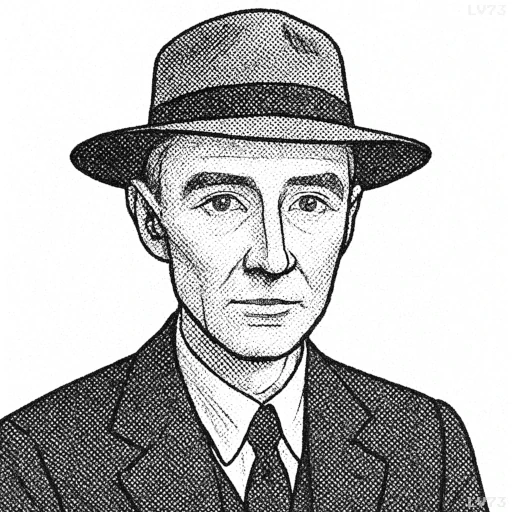“In the spring of 1936, I was introduced by friends to Jean Tatlock. In the autumn, I began to court her. We were at least twice close enough to marriage to think of ourselves as engaged.”

- April 22, 1904 – February 18, 1967
- American
- Theoretical Physicist, Scientific Director of the Manhattan Project, “Father of the Atomic Bomb”
table of contents
Quote
“In the spring of 1936, I was introduced by friends to Jean Tatlock. In the autumn, I began to court her. We were at least twice close enough to marriage to think of ourselves as engaged.”
Explanation
This quote offers a deeply personal glimpse into Oppenheimer’s emotional life, specifically his complex relationship with Jean Tatlock, a woman who profoundly influenced him both intellectually and emotionally. The straightforward tone masks the underlying intensity and fragility of their bond. The phrase “close enough to marriage to think of ourselves as engaged” reflects a love that was deep but ultimately unresolved, hinting at the conflicted emotions and circumstances that kept them apart.
Jean Tatlock was not just a romantic partner but also a member of the Communist Party, a fact that would later contribute to Oppenheimer’s political vulnerability during the Cold War. Their relationship bridged the world of politics, poetry, and science, and it has often been viewed as a source of both inspiration and emotional turmoil for Oppenheimer. This quote captures the yearning and instability of their connection—intimate yet marked by forces beyond personal control.
In a modern sense, the quote speaks to how love and personal history intertwine with public life. For Oppenheimer, this relationship was not simply private—it had lifelong repercussions, both emotionally and politically. It reminds us that even the most brilliant figures are shaped by private attachments, regrets, and the choices they did or could not make, and that these human aspects are essential to understanding their legacy.
Would you like to share your impressions or related stories about this quote in the comments section?



